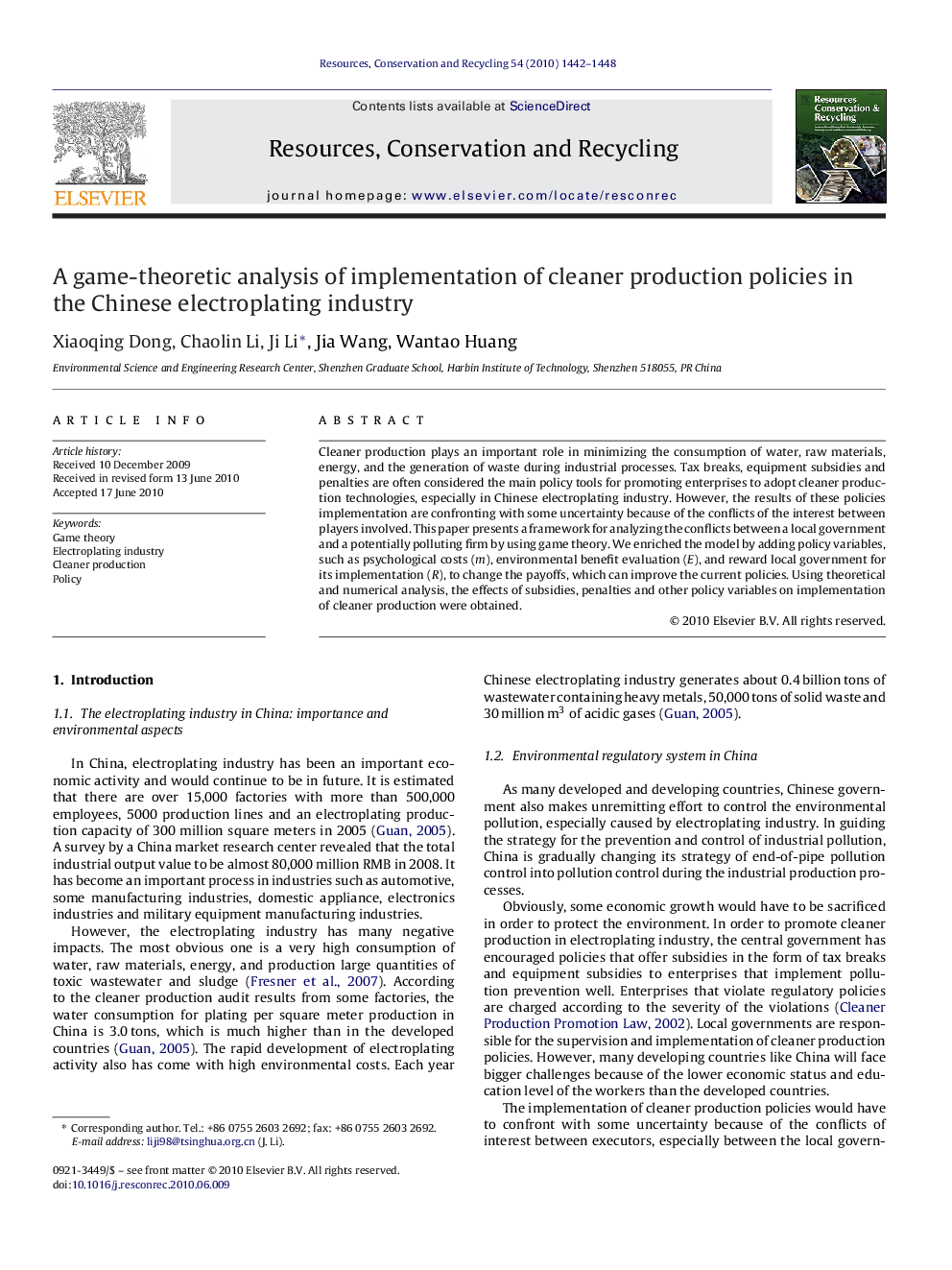| Article ID | Journal | Published Year | Pages | File Type |
|---|---|---|---|---|
| 1063835 | Resources, Conservation and Recycling | 2010 | 7 Pages |
Cleaner production plays an important role in minimizing the consumption of water, raw materials, energy, and the generation of waste during industrial processes. Tax breaks, equipment subsidies and penalties are often considered the main policy tools for promoting enterprises to adopt cleaner production technologies, especially in Chinese electroplating industry. However, the results of these policies implementation are confronting with some uncertainty because of the conflicts of the interest between players involved. This paper presents a framework for analyzing the conflicts between a local government and a potentially polluting firm by using game theory. We enriched the model by adding policy variables, such as psychological costs (m), environmental benefit evaluation (E), and reward local government for its implementation (R), to change the payoffs, which can improve the current policies. Using theoretical and numerical analysis, the effects of subsidies, penalties and other policy variables on implementation of cleaner production were obtained.
